Discover the Women of the Hall
These are the Inductees of the National Women’s Hall of Fame. Select any of the women to discover their stories and learn how they have influenced other women and this country.
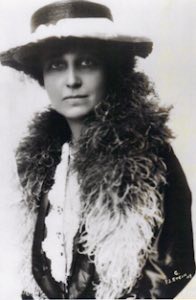
Katharine Dexter McCormick
Co-founder (with Carrie Chapman Catt) of the League of Women Voters in 1920, after ratification of the 19th Amendment. A graduate of MIT in 1904, she funded MIT’s first on-campus residence for women. She devoted her late husband’s wealth to contraceptive research and her own resources and energy to opening up doors for women in science and engineering.
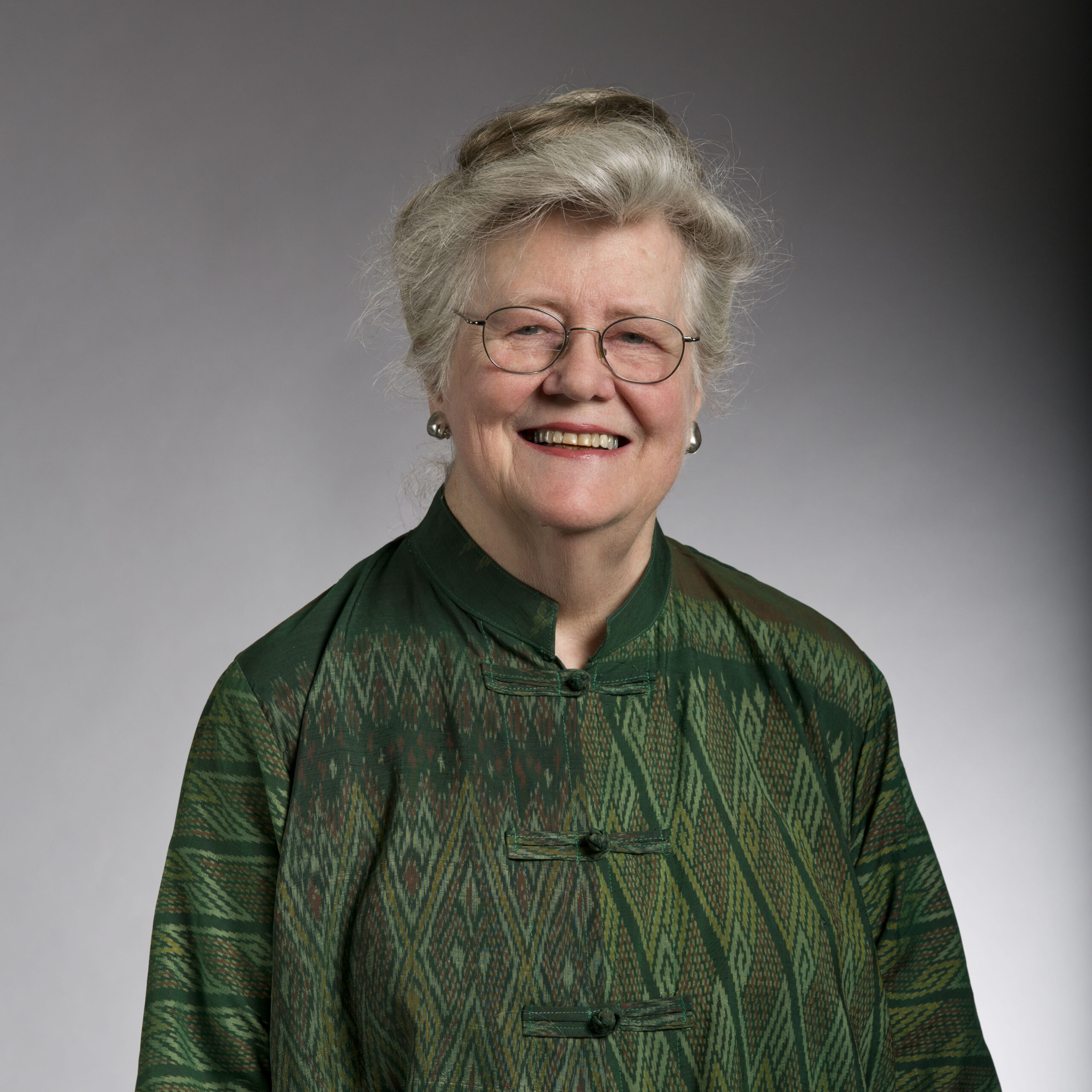
Peggy McIntosh
Peggy McIntosh is renowned as an educational innovator, feminist activist, author, and public speaker. McIntosh derived her understanding of white privilege from observing parallels with male privilege.
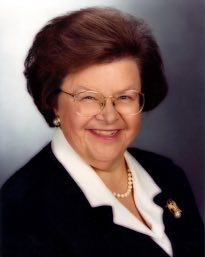
Barbara A. Mikulski
The first female Democratic United States Senator elected in her own right, Barbara Mikulski has been a political trailblazer for more than thirty years. During her tenure as a Senator, Mikulski has developed and supported legislation promoting equal healthcare for American women, Medicare reform, better care for veterans, greater student access to quality education, increased funding for scientific research, and more. Senator Mikulski currently serves as the Dean of the Women in the Senate, and is a senior member of the Health, Education, Labor and Pensions Committee; a senior member of the Appropriations Committee; and a member of the Senate Select Committee on Intelligence. In 2011, Senator Mikulski officially became the longest serving female Senator in United States history.
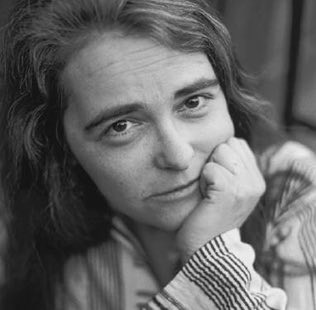
Kate Millett
A feminist activist, writer, visual artist, filmmaker, teacher and human rights advocate, Kate Millett has been described as one of the most influential Americans of the twentieth century. Millett began her career as an English instructor and in 1966, became the first Chair of the Education Committee of the newly formed National Organization for Women. In 1968, she authored a pioneering report published by NOW, Token Learning: A Study of Women’s Higher Education in America, in which she challenged women’s colleges to provide an equal education for women. Millett is perhaps best-known for her landmark work in feminist theory, Sexual Politics (1970). She currently serves as the Director of the Millett Center for the Arts, a creative work space that provides artist in residence accommodation and studio facilities to women artists from around the world.
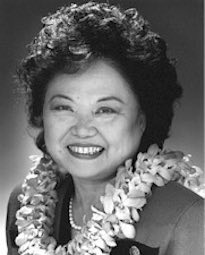
Patsy Takemoto Mink
As the first Asian-American Congresswoman in the history of the United States, attorney Patsy Takemoto Mink opened doors for women and minorities. Her persistence in securing the passage of Title IX in 1972 assured equal treatment for women in athletics in American educational institutions.
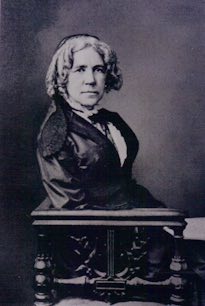
Maria Mitchell
An astronomer who discovered a new comet in 1847, Maria Mitchell was the first woman named to membership in the American Academy of Arts & Sciences. She was also a founder of the Association for the Advancement of Women.

Katharine Dexter McCormick
Co-founder (with Carrie Chapman Catt) of the League of Women Voters in 1920, after ratification of the 19th Amendment. A graduate of MIT in 1904, she funded MIT’s first on-campus residence for women. She devoted her late husband’s wealth to contraceptive research and her own resources and energy to opening up doors for women in science and engineering.

Peggy McIntosh
Peggy McIntosh is renowned as an educational innovator, feminist activist, author, and public speaker. McIntosh derived her understanding of white privilege from observing parallels with male privilege.

Barbara A. Mikulski
The first female Democratic United States Senator elected in her own right, Barbara Mikulski has been a political trailblazer for more than thirty years. During her tenure as a Senator, Mikulski has developed and supported legislation promoting equal healthcare for American women, Medicare reform, better care for veterans, greater student access to quality education, increased funding for scientific research, and more. Senator Mikulski currently serves as the Dean of the Women in the Senate, and is a senior member of the Health, Education, Labor and Pensions Committee; a senior member of the Appropriations Committee; and a member of the Senate Select Committee on Intelligence. In 2011, Senator Mikulski officially became the longest serving female Senator in United States history.

Kate Millett
A feminist activist, writer, visual artist, filmmaker, teacher and human rights advocate, Kate Millett has been described as one of the most influential Americans of the twentieth century. Millett began her career as an English instructor and in 1966, became the first Chair of the Education Committee of the newly formed National Organization for Women. In 1968, she authored a pioneering report published by NOW, Token Learning: A Study of Women’s Higher Education in America, in which she challenged women’s colleges to provide an equal education for women. Millett is perhaps best-known for her landmark work in feminist theory, Sexual Politics (1970). She currently serves as the Director of the Millett Center for the Arts, a creative work space that provides artist in residence accommodation and studio facilities to women artists from around the world.

Patsy Takemoto Mink
As the first Asian-American Congresswoman in the history of the United States, attorney Patsy Takemoto Mink opened doors for women and minorities. Her persistence in securing the passage of Title IX in 1972 assured equal treatment for women in athletics in American educational institutions.

Maria Mitchell
An astronomer who discovered a new comet in 1847, Maria Mitchell was the first woman named to membership in the American Academy of Arts & Sciences. She was also a founder of the Association for the Advancement of Women.
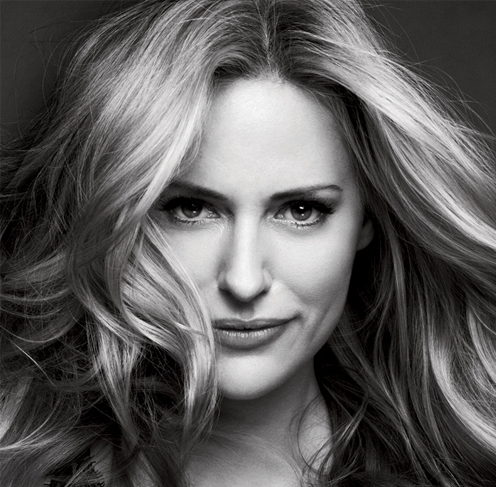
Aimée Mullins
She is a world record holding athlete, ground-breaking high fashion model, beacon for design tech, dedicated advocate, and avant-garde actor. She conceived of, and was the first to wear and compete in, prostheses modeled after the hind legs of a cheetah – now the international standard for amputee runners.
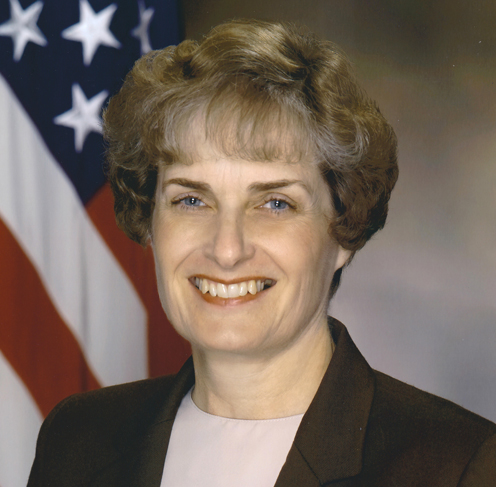
Carol A. Mutter
A Lieutenant General who entered the Marines when only 1% of Marines were women and no women were in the deployed services. Among her numerous activities, she has served as Chair of the Department of Defense Advisory Committee on Women in the Services and is a Past President of the Women Marines Association where she remains active at the national level.
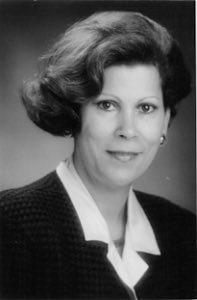
Antonia Novello
First woman and first Hispanic to be named Surgeon General of the United States. A pediatrician, Novello has used her position to alleviate suffering worldwide, especially for women and children.
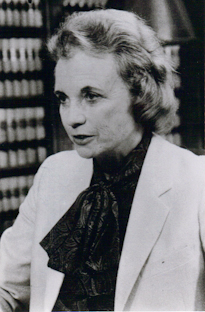
Sandra Day O'Connor
First woman appointed to the U.S. Supreme Court. Following successes as Assistant Attorney General and State Senator in Arizona, O’Connor was elected to Superior Court and then the Court of Appeals. She was named to the Supreme Court by President Ronald Regan.
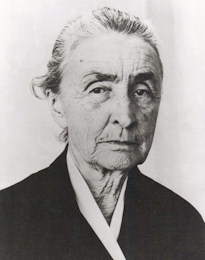
Georgia O'Keeffe
Artist and perhaps the best-known American woman painter. An American original in both her lifestyle and painting, O’Keeffe produced works of high energy and vision throughout her long life.
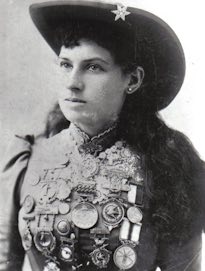
Annie Oakley
Markswoman, was probably the nation’s finest. A performer for many years with Buffalo Bill’s Wild West Show, Oakley was a staunch supporter of other women’s opportunities and raised funds to send needy women to college and nursing school.

Aimée Mullins
She is a world record holding athlete, ground-breaking high fashion model, beacon for design tech, dedicated advocate, and avant-garde actor. She conceived of, and was the first to wear and compete in, prostheses modeled after the hind legs of a cheetah – now the international standard for amputee runners.

Carol A. Mutter
A Lieutenant General who entered the Marines when only 1% of Marines were women and no women were in the deployed services. Among her numerous activities, she has served as Chair of the Department of Defense Advisory Committee on Women in the Services and is a Past President of the Women Marines Association where she remains active at the national level.

Antonia Novello
First woman and first Hispanic to be named Surgeon General of the United States. A pediatrician, Novello has used her position to alleviate suffering worldwide, especially for women and children.

Sandra Day O'Connor
First woman appointed to the U.S. Supreme Court. Following successes as Assistant Attorney General and State Senator in Arizona, O’Connor was elected to Superior Court and then the Court of Appeals. She was named to the Supreme Court by President Ronald Regan.

Georgia O'Keeffe
Artist and perhaps the best-known American woman painter. An American original in both her lifestyle and painting, O’Keeffe produced works of high energy and vision throughout her long life.

Annie Oakley
Markswoman, was probably the nation’s finest. A performer for many years with Buffalo Bill’s Wild West Show, Oakley was a staunch supporter of other women’s opportunities and raised funds to send needy women to college and nursing school.
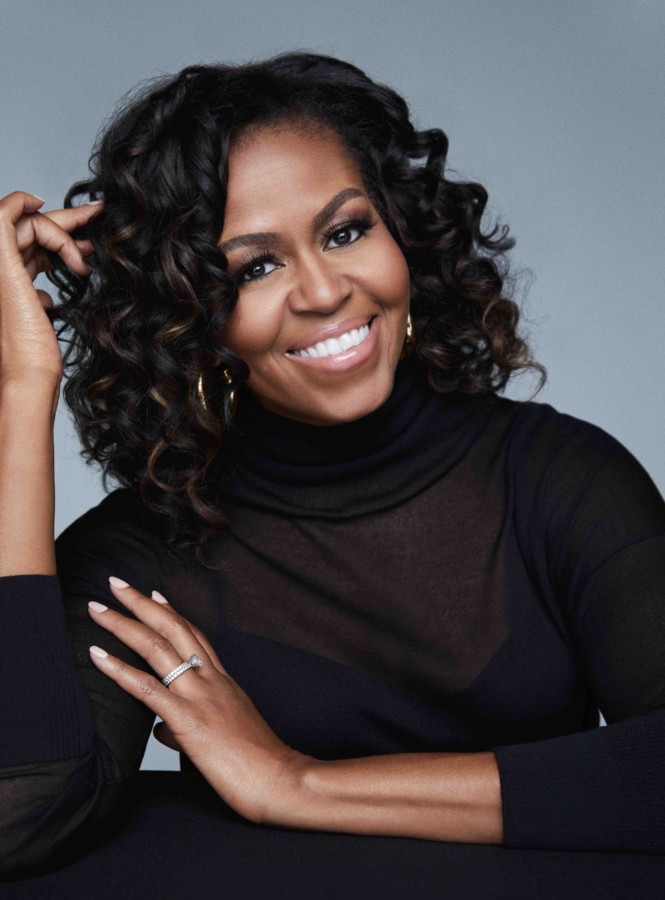
Michelle Obama

Rosa Parks
Known as “the mother of the Civil Rights Movement,” when, in 1955, she refused to give up her seat on a public bus to a white man in Montgomery, Alabama. The event sparked the Montgomery bus boycott, the first major effort in the Civil Rights struggle.
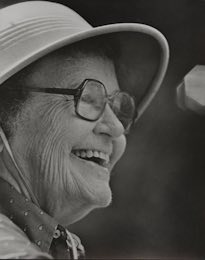
Ruth Patrick
A pioneer in the field of limnology – the scientific study of the life and phenomena of fresh water, especially lakes and ponds – Ruth Patrick provided methods needed to monitor water pollution and understand its effects. Patrick is credited, along with Rachel Carson, as being largely responsible for ushering in the current worldwide concerns with ecology. She was the first female elected chair of the board of the Academy of Natural Sciences and received the National Medal of Science in 1996.

Nancy Pelosi
For twenty-five years, Nancy Pelosi has broken ground for women in politics. As the representative from California’s 12th district, Pelosi has focused her political career on strengthening America’s middle class and creating jobs, reforming the political system to create clean campaigns and fair elections, enacting comprehensive immigration reform, and ensuring safety in America’s communities, neighborhoods and schools. In 2002, Pelosi became the first woman to lead a major political party in the United States as the Democratic Leader of the U.S. House of Representatives, and from 2007-2011, she served as the first female Speaker of the U.S. House of Representatives. Pelosi has spearheaded the passage of historic legislation, including the Affordable Care Act, the Student Aid and Fiscal Responsibility Act, the Lilly Ledbetter Fair Pay Act, and more.
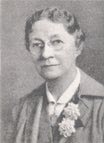
Mary Engle Pennington
Chemist and refrigeration expert Mary Engle Pennington saved thousands of lives by creating national standards for milk and dairy inspection and improved the safety and convenience of refrigerated and frozen foods. She was also instrumental in developing safe and sanitary methods for the storage and handling of poultry, fish, and eggs, contributing techniques that solved humidity control problems, insulation and ventilation issues.
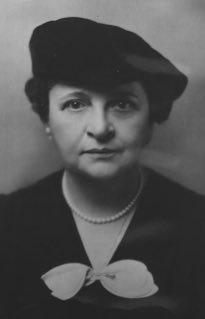
Frances Perkins
Public official and first woman to hold a Presidential Cabinet office and first woman Secretary of Labor. Appointed by President Roosevelt in 1932, she served for all of his terms, 1933-1945.

Michelle Obama

Rosa Parks
Known as “the mother of the Civil Rights Movement,” when, in 1955, she refused to give up her seat on a public bus to a white man in Montgomery, Alabama. The event sparked the Montgomery bus boycott, the first major effort in the Civil Rights struggle.

Ruth Patrick
A pioneer in the field of limnology – the scientific study of the life and phenomena of fresh water, especially lakes and ponds – Ruth Patrick provided methods needed to monitor water pollution and understand its effects. Patrick is credited, along with Rachel Carson, as being largely responsible for ushering in the current worldwide concerns with ecology. She was the first female elected chair of the board of the Academy of Natural Sciences and received the National Medal of Science in 1996.

Nancy Pelosi
For twenty-five years, Nancy Pelosi has broken ground for women in politics. As the representative from California’s 12th district, Pelosi has focused her political career on strengthening America’s middle class and creating jobs, reforming the political system to create clean campaigns and fair elections, enacting comprehensive immigration reform, and ensuring safety in America’s communities, neighborhoods and schools. In 2002, Pelosi became the first woman to lead a major political party in the United States as the Democratic Leader of the U.S. House of Representatives, and from 2007-2011, she served as the first female Speaker of the U.S. House of Representatives. Pelosi has spearheaded the passage of historic legislation, including the Affordable Care Act, the Student Aid and Fiscal Responsibility Act, the Lilly Ledbetter Fair Pay Act, and more.

Mary Engle Pennington
Chemist and refrigeration expert Mary Engle Pennington saved thousands of lives by creating national standards for milk and dairy inspection and improved the safety and convenience of refrigerated and frozen foods. She was also instrumental in developing safe and sanitary methods for the storage and handling of poultry, fish, and eggs, contributing techniques that solved humidity control problems, insulation and ventilation issues.

Frances Perkins
Public official and first woman to hold a Presidential Cabinet office and first woman Secretary of Labor. Appointed by President Roosevelt in 1932, she served for all of his terms, 1933-1945.
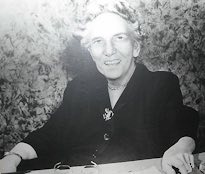
Rebecca Talbot Perkins
In 1927, a time when very few agencies existed to promote adoption, Rebecca Talbot Perkins joined with the Alliance of Women’s Clubs of Brooklyn to create The Rebecca Talbot Perkins Adoption Society. Later known as Talbot Perkins Children’s Services, the organization provided foster care and adoption services to countless families across the country for 75 years. Throughout her lifetime, Perkins was active in various charitable and civic causes as a member of the Brooklyn Women’s Suffrage Society, chair of the Alliance of Women’s Clubs of Brooklyn, Vice President of the Memorial Hospital for Women and Children, and a director of the Welcome Home for Girls.
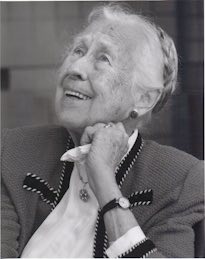
Esther Peterson
Catalyst for change in the labor, women’s and consumer movements. The driving force behind President Kennedy’s creation of the first Presidential Commission on Women in 1962, Peterson headed the Women’s Bureau in the Department of Labor. She also served Presidents Johnson and Carter, and served at the United Nations under President Clinton.
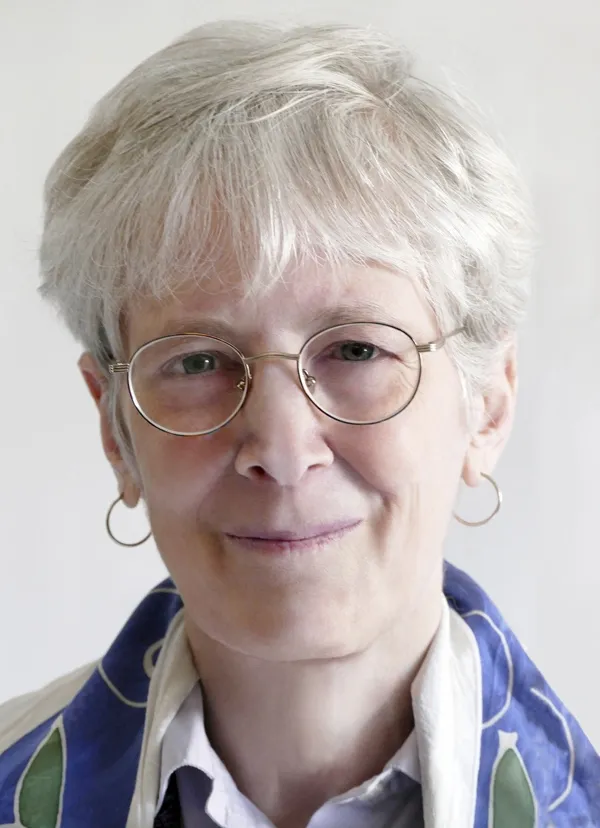
Judith Plaskow
In the realm of feminist theology, one of the names that stands out as a pioneering force is Dr. Judith Plaskow. An author and activist, Paskow is a visionary thinker whose intellectual contributions have shaped discourse and enriched our understanding of spirituality, gender, and equality.

Jeannette Rankin
First woman elected to the U.S. Congress. Rankin served two separate terms representing Montana, and was the only U.S. Representative to vote against America’s entry into both World Wars. A lifelong pacifist, she worked for peace until her death.

Janet Reno
As Florida State Attorney, she helped establish the Miami Drug Court and reform the juvenile justice system. Appointed by President Clinton to be the first woman Attorney General of the United States, she brought a personal and professional integrity to the office during times when issues were divided bitterly along partisan lines.

Sally Ride
First American woman astronaut (1983), when she rode aboard the Challenger into space. A scientist, Ride served as the Director of the California Space Institute at the University of California, San Diego.

Rebecca Talbot Perkins
In 1927, a time when very few agencies existed to promote adoption, Rebecca Talbot Perkins joined with the Alliance of Women’s Clubs of Brooklyn to create The Rebecca Talbot Perkins Adoption Society. Later known as Talbot Perkins Children’s Services, the organization provided foster care and adoption services to countless families across the country for 75 years. Throughout her lifetime, Perkins was active in various charitable and civic causes as a member of the Brooklyn Women’s Suffrage Society, chair of the Alliance of Women’s Clubs of Brooklyn, Vice President of the Memorial Hospital for Women and Children, and a director of the Welcome Home for Girls.

Esther Peterson
Catalyst for change in the labor, women’s and consumer movements. The driving force behind President Kennedy’s creation of the first Presidential Commission on Women in 1962, Peterson headed the Women’s Bureau in the Department of Labor. She also served Presidents Johnson and Carter, and served at the United Nations under President Clinton.

Judith Plaskow
In the realm of feminist theology, one of the names that stands out as a pioneering force is Dr. Judith Plaskow. An author and activist, Paskow is a visionary thinker whose intellectual contributions have shaped discourse and enriched our understanding of spirituality, gender, and equality.

Jeannette Rankin
First woman elected to the U.S. Congress. Rankin served two separate terms representing Montana, and was the only U.S. Representative to vote against America’s entry into both World Wars. A lifelong pacifist, she worked for peace until her death.

Janet Reno
As Florida State Attorney, she helped establish the Miami Drug Court and reform the juvenile justice system. Appointed by President Clinton to be the first woman Attorney General of the United States, she brought a personal and professional integrity to the office during times when issues were divided bitterly along partisan lines.

Sally Ride
First American woman astronaut (1983), when she rode aboard the Challenger into space. A scientist, Ride served as the Director of the California Space Institute at the University of California, San Diego.
